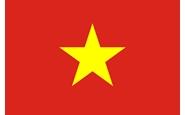Government/Policy

September 22, 2016
Leibowitz: Commerce Asked to Treat Vietnam CORE as if China CORE
Written by John Packard
Steel Market Update reached out to trade attorney Lewis Leibowitz and to review the Vietnam CORE (corrosion resistant steels = galvanized and Galvalume) filing by California Steel and Steel Dynamics. The filing was made by the law firm Schagrin Associates.
I only have time for a brief response after quickly reviewing the Schagrin filing asking for a circumvention finding.
In essence, Schagrin is asking for the US Commerce Department to treat imports of CORE from Vietnam as if they were Chinese CORE, subject to the same AD/CVD rates as Chinese steel is subject to.
A proper alternative would be to file a petition against CORE from Vietnam. That approach would comport with international trading rules, while the anti-circumvention may not comply.
Here’s why: antidumping and countervailing duties are authorized by GATT and WTO agreements to offset price differences and government subsidies that are found to cause injury. Schagrin expands the role of circumvention by treating Vietnam as essentially an appendage of China, a kind of colony. The speculation (and it is essentially speculation, because no real evidence has been gathered) that all these Vietnamese exports to the United States are made from Chinese substrate should not allow private petitioners to goad the government into action by assuming facts that are given without adequate support.
Circumvention by third-country processing essentially requires a type of subterfuge, meaning that the processing is “insignificant” in the third country. But in previous cases, and as admitted by Schagrin’s filing, CORE and HR or CR coil are entirely different products, subject to different proceedings. In the Steel VRAs in the 1980s, galvanizing was a substantial transformation. In the 201 Safeguard case in 2002-03, galvanizing was considered a substantial transformation. That term is important, because galvanizing means that the country of origin of the steel changes to the country where galvanizing took place. Schagrin is pushing the envelope in this case, and potentially causing a diplomatic eruption by treating Vietnam as a colony of China.
I hope the Commerce Department will review the evidence carefully and not overturn more than 25 years of precedent by holding that galvanizing of HR or CR steel is an “insignificant” process. If Schagrin and his clients believe that Vietnam is exporting dumped or subsidized steel to the US, a petition should be prepared and filed against Vietnam, so that the pricing, costs and subsidies can be evaluated based on evidence, as the WTO agreements require.







